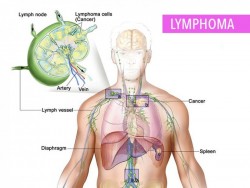
We pay special attention to the other aspects of our body and maintain our oral health. At this time, oral problems such as gingivitis and periodontitis occur. Periodontitis affects about 30-50% of the world population.
Do your teeth appear longer than usual? Shake it lightly with your fingers. Do you feel like they fall down at any moment? You may be suffering from periodontitis and need to see a dentist immediately! To learn more about this oral problem and its treatment, read on.
Periodontitis (or gum disease) is a severe infection of the gums that can damage the soft tissue and bone supporting your teeth. Failure to treat this condition can completely worsen the alveolar bone around the teeth. This can cause your teeth to loosen and some of them can even fall off.
Although periodontal disease is quite common, it is largely preventable.
Periodontal disease is usually the second stage of gum disease. Periodontal or gum disease is usually divided into three stages.
The three main stages of periodontitis are:
This is the most common stage of the disease. It forms plaque around your gums and in some cases can cause inflammation, swelling and even bleeding.
If the gingivitis is not treated, it can become heavy and cause periodontal disease. This infection threatens the gum, jawbone and surrounding bone.
If periodontitis progresses to this stage, there is a high risk that you will lose some of your teeth as well as the bones and fibers that they carry. This is the most severe stage that can lead to persistent bad breath, toothache, tooth loss, bone loss, and so on.
In this article we are dealing with the second stage of gum disease - periodontitis. Now let's take a look at the signs and symptoms.
The most common symptoms of periodontal disease are:
What factors trigger periodontitis? Let us find out.
Most cases of periodontitis begin with the formation of plaques on the teeth and gums. Plaque formation can further contribute to the development of periodontitis in the following phases:
The most common risk factors for periodontitis include:
Many people mistake periodontitis for gingivitis because of the similarities in their symptoms. However, you must be aware that periodontal disease is an advanced stage of gingivitis. Below are some of the main differences between the two.
Some of the main differences between gingivitis and periodontitis are:
When it comes to your oral health, you should immediately initiate a medical procedure to prevent the progression of periodontal disease.
It is best to see a dentist immediately if you find that your case is causing gingivitis. Have your teeth checked regularly or as recommended by your dentist. The sooner you start treatment, the better the chances of reversing the damage before it becomes permanent.
If you visit a dentist, you may be able to do the following tests to determine if you have periodontitis or not.
Your dentist can first review your medical history and lifestyle to identify any factors that may contribute to the development of periodontitis.
Once your dentist has confirmed periodontal disease, you may be prescribed some treatments and asked to make lifestyle changes.
Treatments are usually performed by a dentist, a periodontist or a dental hygienist. The main goal of the treatment is usually to thoroughly clean the pockets around the teeth and to prevent damage to the surrounding bones and tissues.
You must follow good oral care and stop smoking to get the best results from the treatment.
Non-advanced periodontitis may only require less invasive or non-surgical procedures such as:
Advanced cases of periodontitis may require surgery, such as:
Depending on the severity of your teeth damage, your doctor may prescribe any of the above treatments to speed up your healing.
It is also recommended that you follow these tips to make your ongoing medical treatments work better.
It is best to conduct regular dental examinations to detect periodontal disease early so that damage to the teeth and gums can be easily corrected. Without treatment, periodontal disease can lead to complications.
The complications of periodontal disease are the following:
Do not take your oral health for granted. After a good oral hygiene and regular dental examinations, the periodontitis can be successfully combated and prevented.
 What Happens When You Quit Smoking – A Timeline
What Happens When You Quit Smoking – A TimelineEvery year more than 7 million people die as a result o...
 Types Of Yoga, Which One Is Best For You?
Types Of Yoga, Which One Is Best For You?There are two types of people in the world - those who ...
 10 Amazing Health Benefits Of Apricot Juice
10 Amazing Health Benefits Of Apricot JuiceOriginally from China, the use of apricots began almost...
 Cheap & Healthy Shopping List for Students
Cheap & Healthy Shopping List for StudentsCheap & Healthy Shopping List for StudentsStaying o...
 This Honey, Lemon And Cinnamon Drink Will Help You Lose Pounds In A Week
This Honey, Lemon And Cinnamon Drink Will Help You Lose Pounds In A WeekThe most effective way to lose weight is to do aerobic ...
 What You Need To Know About Lymphoma
What You Need To Know About LymphomaLymphoma is a cancer of the lymphatic system. It affect...
 This Honey, Lemon And Cinnamon Drink Will Help You Lose Pounds In A Week
This Honey, Lemon And Cinnamon Drink Will Help You Lose Pounds In A WeekThe most effective way to lose weight is to do aerobic ...
 Colon Cancer: Could Exercise Halt Tumor Growth?
Colon Cancer: Could Exercise Halt Tumor Growth?New research published in the Journal of Physiology sug...